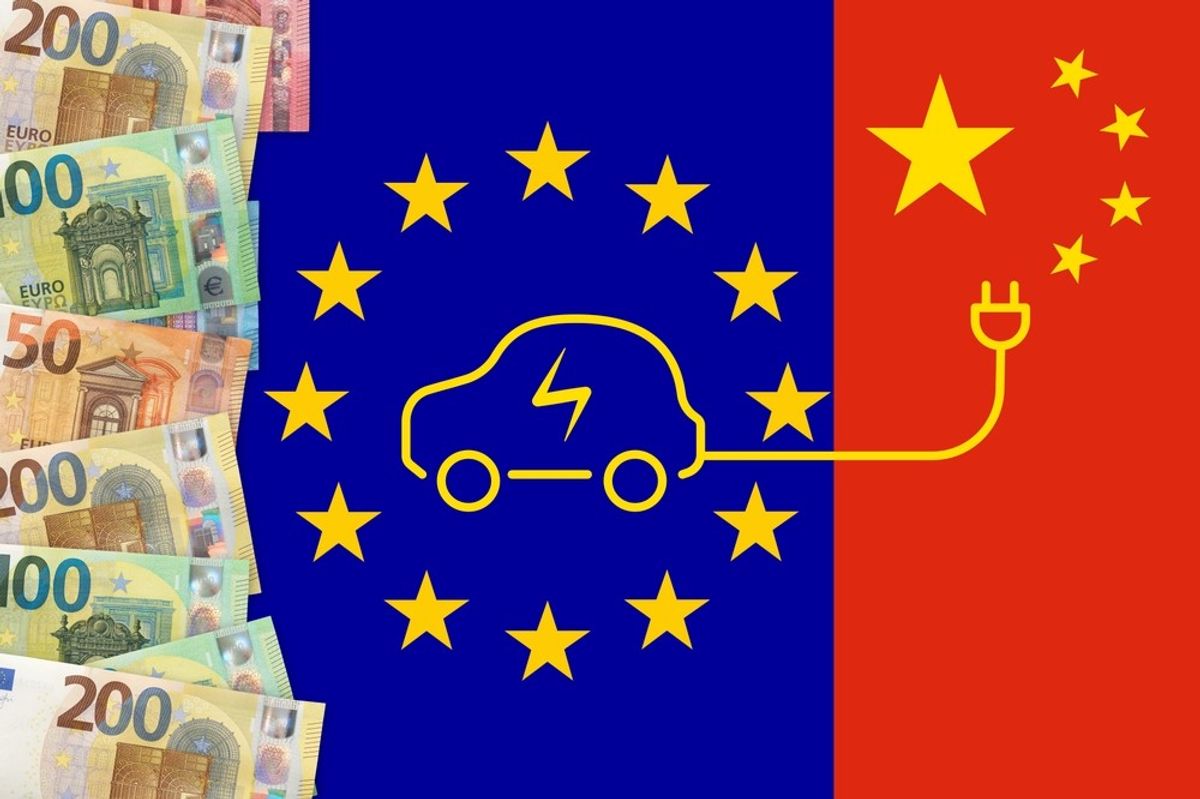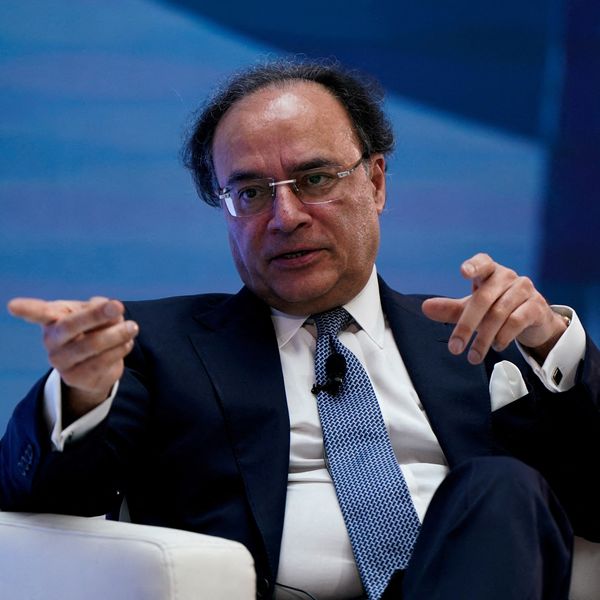European carmaker stocks slide to record lows amid mounting challenges
European automakers face record stock declines as competition from China, economic challenges, and geopolitical tensions mount, threatening the industry's future.

Rana Tabbara
Senior Business Producer
Rana Tabbara is a UAE-based reporter and content creator known for dynamic storytelling, impactful reporting, and high-profile interviews. She interviewed leaders including the UAE Minister of Energy, the Australian Prime Minister, the Saudi Minister of Tourism, the Armenian Minister of Economy, and CEOs of major companies. Rana covered big events like the World Government Summit, LEAP, Cityscape KSA, IDEX, among others. Her previous experiences include The New York Times, CNN Business Arabic, and L'Orient-Le Jour.

European automakers face stiff competition from cheaper, state-subsidized Chinese electric vehicles.
Shutterstock
- EU’s probe into Chinese subsidies could lead to a trade war, impacting European exports.
- Inflation and weak demand in Europe add pressure on automakers transitioning to electric vehicles.
European carmaker stocks have plunged to record lows in recent months, impacted by intense competition from Chinese electric vehicle (EV) manufacturers, a declining economic environment, and increasing geopolitical risks.
Major automakers like Volkswagen, Stellantis, BMW, and Mercedes-Benz are all feeling the pressure as investor confidence wanes and market challenges continue to mount.
Competition from China
One of the most significant factors driving the decline is the expanding presence of Chinese EV manufacturers, in the European market. These companies are undercutting European automakers with lower prices, thanks to significant state subsidies and reduced production costs. As Chinese brands gain market share in Europe, local carmakers struggle to keep up.
Tom Narayan, an automotive analyst at RBC, told Euronews, “The situation has gotten more dire for European automakers as Chinese competitors gain market share in the EV space, and this is raising concerns among investors who fear that Europe may not be able to catch up.”
The influx of cheaper, government-supported Chinese vehicles is reshaping the competitive landscape, putting European carmakers on the defensive.
EU investigation and potential trade war
In response to the growing influence of Chinese automakers, the European Union recently launched an investigation into Chinese EV subsidies. The EU aims to determine whether China’s government is giving its domestic manufacturers unfair advantages, potentially breaching international trade rules.
If the investigation find evidence of this, it could result in imposition of tariffs on Chinese imports, a move that would attempt to level the playing field for European manufacturers.
However, the threat of retaliation from China looms large. Reuters quoted a European Commission spokesperson: “We cannot allow our market to be flooded with Chinese cars undercutting our own producers.”
The spokesperson also highlighted the need to protect European jobs and industries. While the investigation seeks to address the competitive imbalance, industry insiders are worried about the consequences.
"China has made it clear that any retaliatory tariffs could significantly harm European carmakers, who are already struggling with demand," an industry insider warned Reuters.
The potential for a trade war between two of the world’s largest economies could exacerbate the challenges facing European automakers, many of whom rely heavily on exports to China.
A tariff escalation would hurt both sides, but European manufacturers, already contending with high production costs and a competitive EV landscape, may suffer more.
Economic and industry struggles
Europe's economic landscape is also contributing to carmakers' troubles. The continent is grappling with high inflation, elevated interest rates, and sluggish economic growth, all of which are reducing consumer spending on big-ticket items like cars.
This slowdown in demand has hit European automakers hard, particularly as they attempt to manage the costly transition to electric vehicles, which requires significant investment in new technologies and production lines.
Philippe Houchois, an automotive analyst at Jefferies, warned of the deteriorating economic environment: "The environment in Europe is deteriorating fast, and it’s hard to see how automakers will escape the fallout. If they can’t adapt quickly to both the economic and competitive pressures, the worst is yet to come," he told Bloomberg.
The cost of transitioning to electric vehicles, coupled with rising production costs due to inflation, has left many companies stretched thin.
Volkswagen, for instance, has poured billions into developing its electric vehicle lineup, but scaling production has proven more challenging than anticipated. The company is facing logistical issues, higher raw material costs, and the need to retrofit its factories, all while trying to maintain profitability in a highly competitive market.
Stock market decline
These pressures have been reflected in the stock market. The STOXX 600 Automobiles & Parts Index, which tracks the performance of the European automotive sector, has seen sharp declines in recent months. Investors are increasingly cautious about the long-term prospects of these companies, fearing that European carmakers may face a prolonged period of stagnation unless they can quickly adapt to new market realities.
Market observers are now questioning whether traditional European brands can successfully pivot to electric vehicles quickly enough to fend off competition from China and avoid further financial damage.
Future outlook
European automakers are facing an unprecedented convergence of challenges that have driven their stocks to record lows. The rapid rise of Chinese EV manufacturers, geopolitical tensions over trade, and weak economic conditions are creating a difficult environment for companies like Volkswagen, Stellantis, and BMW.
While the EU's investigation into Chinese subsidies might offer some relief if tariffs are imposed, the risk of a trade war adds another layer of uncertainty.
"The future looks increasingly tough for Europe's carmakers, unless they can find new ways to compete and innovate," concluded Jefferies analyst Philippe Houchois. With no easy solutions in sight, the outlook for European automaker stocks remains bleak, leaving investors wary and companies scrambling to adjust to a rapidly evolving global market.










Comments
See what people are discussing